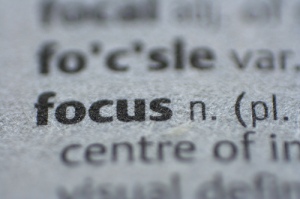Guest Post – Sarah Moore: TV journalism
November 17, 2010 2 Comments
This week – in a Hacks special – we look at a Wanna-‘be’ and a Wanna-‘been’ in the TV journalism industry. Our Wanna-‘been’ is the award-winning TV journalist Sarah Moore who has worked with ITN, ITV, GMTV and now lectures in broadcast journalism at Salford University.
Sarah is a journalist that has traveled and reported all over the world. Basically, she has bags of experience and that means there’s lots of advice… Here it is.
Lesson number 1: you do not break into television expecting it to be glamorous!
Of course elements of the job can be. It’s pretty glamorous being sent to Paris Fashion Week. It’s not however glamorous when you’ve been given just a few hours to get there and you’re not exactly dressed for the occasion or able to speak the same language as your crew.
I’ve spent the past ten years working in television news. I was very fortunate to get my first job at ITV Central in Birmingham, one of the best regional news stations. It was a big step for someone straight out of a post-grad course in Broadcast Journalism at the Cardiff Journalism School.
So how did I break into the industry known to be one of the most cut-throat and competitive of them all?









GSMA – Kingston Uni: we won “because we took risks”
November 26, 2010 by Matthew Caines 5 Comments
Lara O’Reilly is former editor of Kingston University’s River newspaper + now a reporter at Marketing Week…
Winning is sometimes far sweeter when you are not expecting it at all.
Hours before the event two nights ago news was spreading around Twitter that there had been an apparent leak of the Guardian Student Media Awards results.
According to the rumours a press release was sent to current editors of the nominated student publications asking if they would like photos of the event – oh and revealing the winner and runner-up of each category.
Lara O'Reilly and Callum Hornigold
We didn’t know the result for sure; everyone on Twitter was respecting the embargo, but there were plenty of smug-sounding tweets from certain students who seemed to already know the result.
We practiced our gracious losing smiles on the tube to the Guardian offices, still overjoyed that we had been nominated at all.
The ceremony was small, fun and informal – more like a networking event than an awards show, with everyone chatting to students from other publications and introducing themselves to a few of the journos associated with the event.
Read more of this post
Rate this:
Filed under Advice, Comment, Guest Posts Tagged with Advice, Callum Hornigold, GSMA, Guardian, journalism, Kingston Uni, Laura O'Reilly, Media, risks, River, Student, tabloid, winners